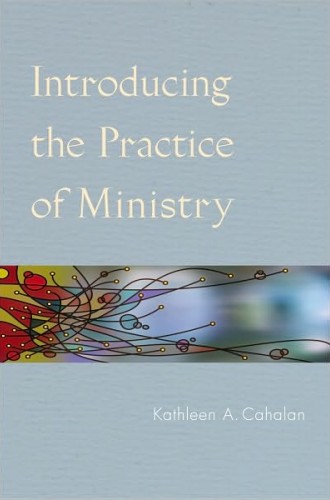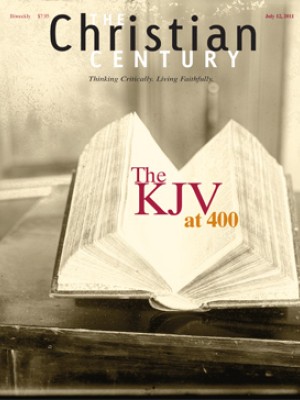Introducing the Practice of Ministry, by Kathleen A. Cahalan
Sitting in a large hall surrounded by bright young ministers and wise seasoned pastors, I have a shaking self-revelation. Fifteen years after beginning my first call to ministry, I realize how utterly clueless I was about what I was doing back then. Worse, I realize that no one in that congregation or on its pastoral staff had the words to articulate what I was doing.
This revelation occurs while I am listening to senior nursing scholar Patricia Benner and my research partner, Christian Scharen, tell stories about becoming a nurse and becoming a pastor. They are drawing on a developmental model of adult learning articulated by the Dreyfus brothers, Stuart (engineer) and Hubert (philosopher). Step by step, Benner and Scharen sketch out an arc of learning that moves someone from novice, through advanced beginner, to competent and then proficient practitioner, and finally to wise expert.
Read our latest issue or browse back issues.
As I listen, the awareness wells up in me that I had virtually nothing of this vision of ministry as a practice; nor could I see then how learning ministry might unfold over a period of time beyond seminary. But the really stunning moment comes with the realization that I also lacked any real sense that there was support for this kind of learning in my congregation.
Don't get me wrong. As far as first assignments for Baptist clergywomen in the South go, mine was a plum. And in those early years of ministry I learned about theological reflection, seeing my own gifts and limits and those of others, leading people of all ages, recovering after letdowns, attending to grief, proclaiming good news and navigating conflict. It was more than I could possibly have imagined on that first day when I stepped out of my car and surveyed the brick church surrounded by a Georgia cotton field.
But I do wish that tucked into the moving boxes had been this slim volume by Kathleen Cahalan. Introducing the Practice of Ministry would have offered me a biblical framework for ministry rooted in the stories, actions and words of Jesus. It would have given me a theological foundation and vision for ministry as a gift coming from the "two hands of God," one hand being the life of Jesus, the other hand being the charisms, the gifts, of the Spirit. And it would have provided me with a developmental framework for a process of learning ministry over time.
Possibly the greatest gift it might have given to me and to those I served would have been a way to think clearly about the continuity between discipleship and ministry. Cahalan articulates discipleship as following Jesus, who was a model follower of God's purpose, a witness to God's presence, a loving neighbor and forgiver—one who prayed and worshiped, spoke and acted prophetically and was a steward of the mysteries and gifts of God. In the biblical logic that she builds through the book, Cahalan makes clear how these practices of discipleship are the very ground out of which the practice of ministry grows.
Every follower of Christ is a disciple, although not every disciple is a minister. Protestants in the free-church tradition may worry that this view undercuts the priesthood of all believers. Yet the distinction is helpful. Ministry is a vocation (among many) and can be understood as a calling to lead disciples for the sake of God's mission in the world through gifting from the Spirit to support that calling.
Cahalan, who teaches ministry students at St. John's School of Theology in Collegeville, Minnesota, is a leading voice in conversations about practical theology, theological education and ministry. She is writing to a wide audience of Protestant, Orthodox and Roman Catholic Christians. The book presents two substantial challenges to prevailing notions of ministry among Roman Catholics and other Christians.
The first challenge is to ways that ministry is often conceived as a matter of identity and role. Calahan wants to overcome the "long-standing divide" between identity (who one is) and practice (what one does). She argues that these ways of thinking about ministry are "deeply connected." She doesn't leave aside questions of role or identity, but the book clearly and eloquently prioritizes practice and giftedness. She also grounds the unity of being and doing in the trinitarian life of God.
The second challenge comes at the point of diversity in ministry practice. Here Cahalan is reclaiming and articulating a biblical and theological rationale for the transformation of practice in Roman Catholic churches, which was set in motion at Vatican II and continues to evolve. No longer is ministry the domain solely of the ordained priesthood. Across the American landscape Catholic (as well as Protestant) ministry is led by ordained and nonordained men and women from many walks of life who have discerned a call to lead disciples in the church. Many of Cahalan's students will be lay ministers in congregations where priests are in short supply.
As Cahalan points out, "ministry is not a term that has been defined often and probably for good reason." Throughout the text she points out the limits of what we can say and know about the practices of discipleship and ministry and about the life of God. Yet she takes the risk of articulating ministry, and in so doing she develops a theology of vocation that highlights practice and gifts. By presenting the practice of ministry as something learned over time, she shows how practice leads to prudence—or practical wisdom in action.
In my research about pastoral ministry, it has become evident that books that give an account of the practice of ministry are in short supply. Cahalan's book is a welcome gift to fill that gap. Pastors, theological teachers and those discerning a call to ministry may all find a welcome in its pages. It expands the academic conversation about the long arc of learning ministry over time. And for me, it holds a grace for interpreting my own story, giving words to my experience of learning to be a pastor in a Georgia cotton field.






